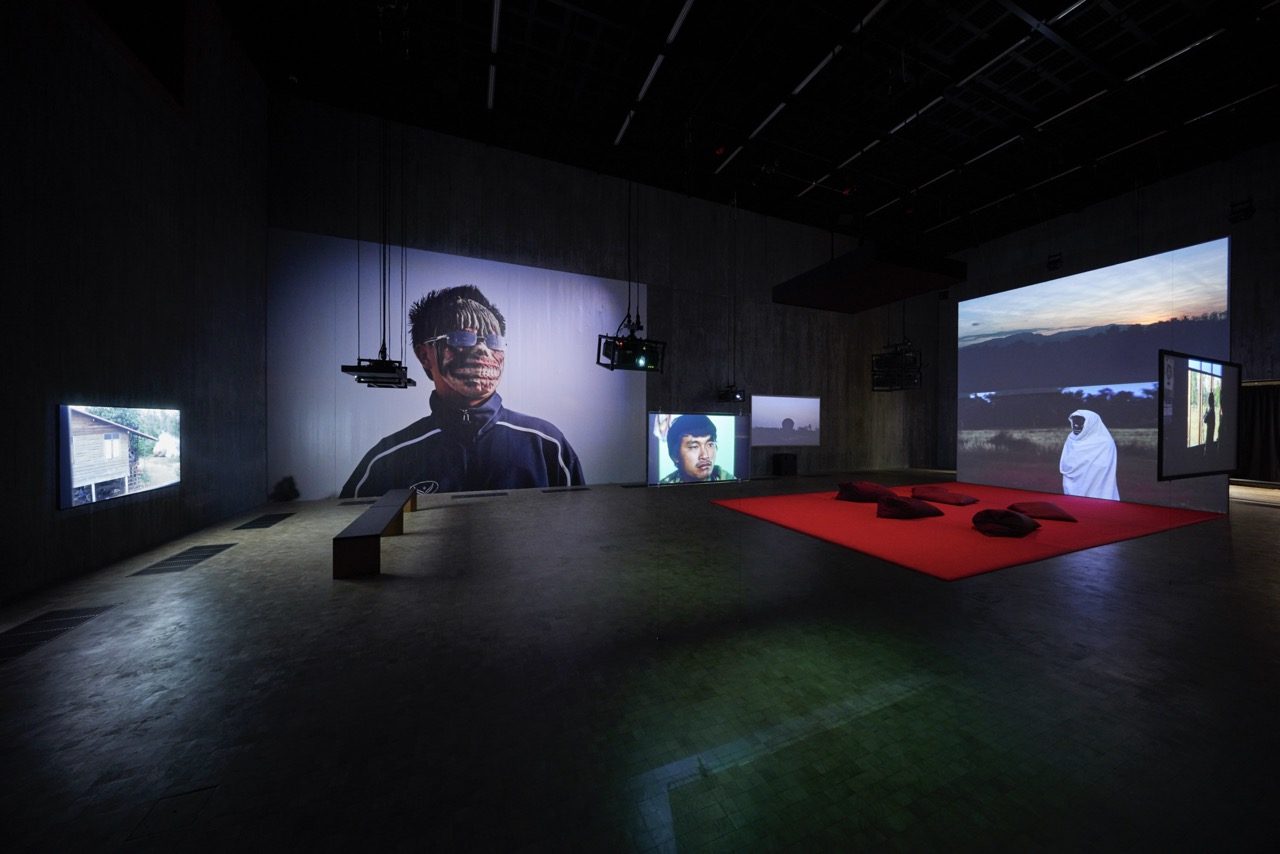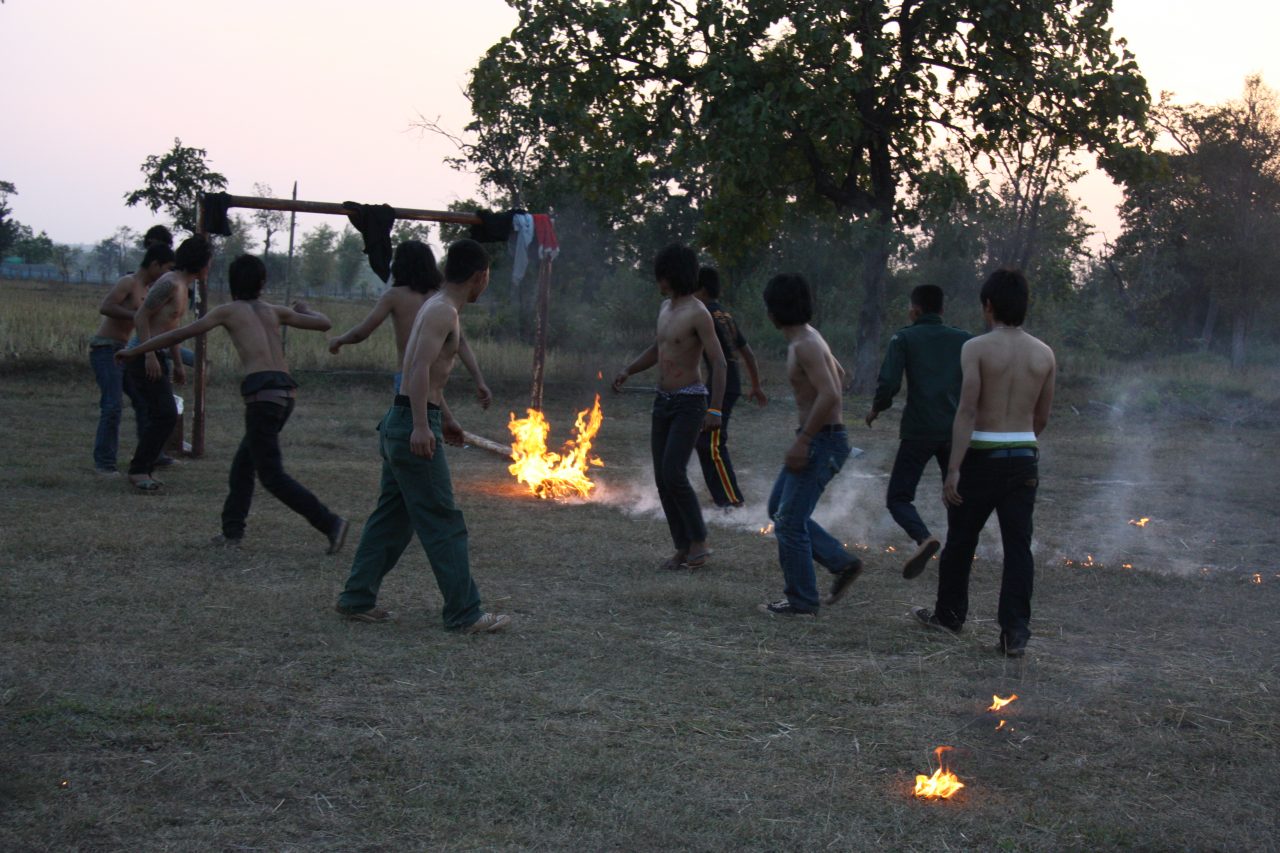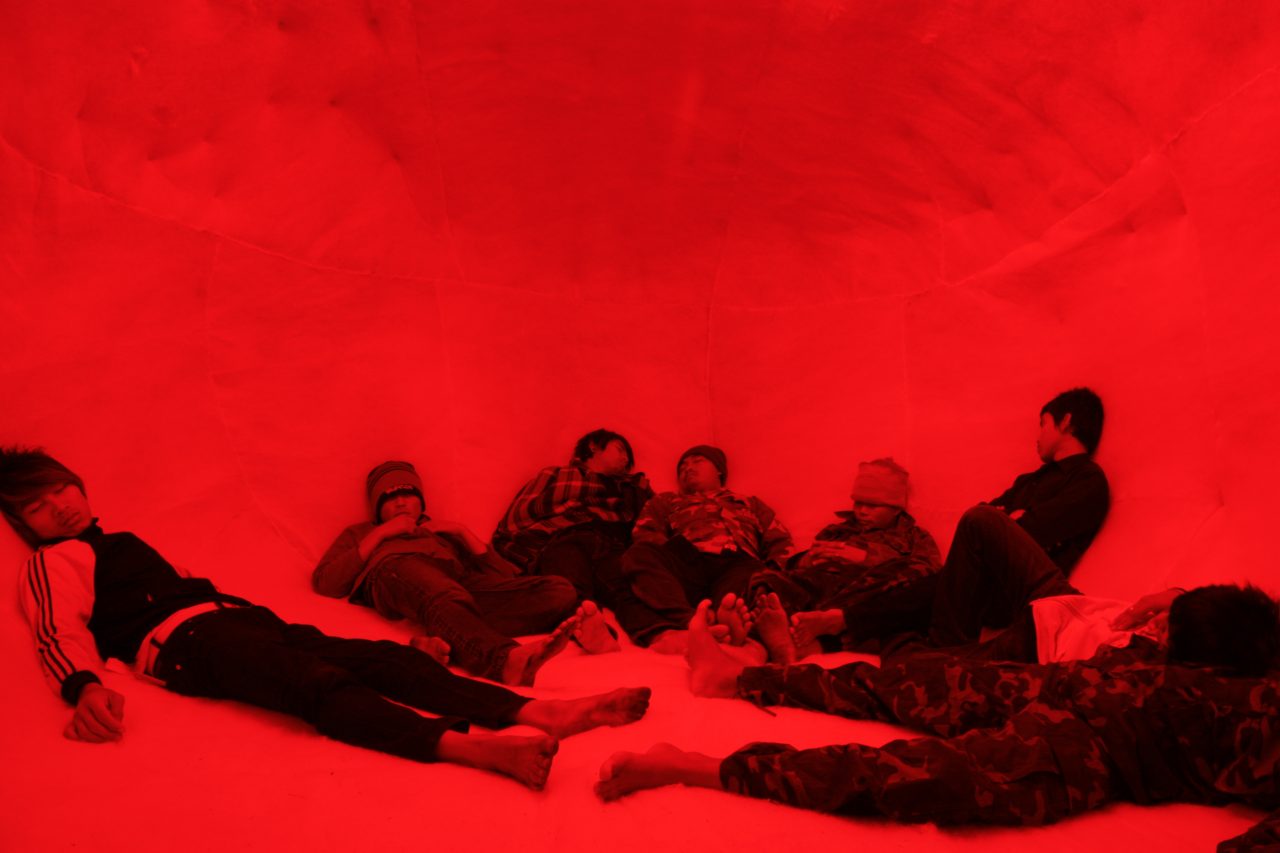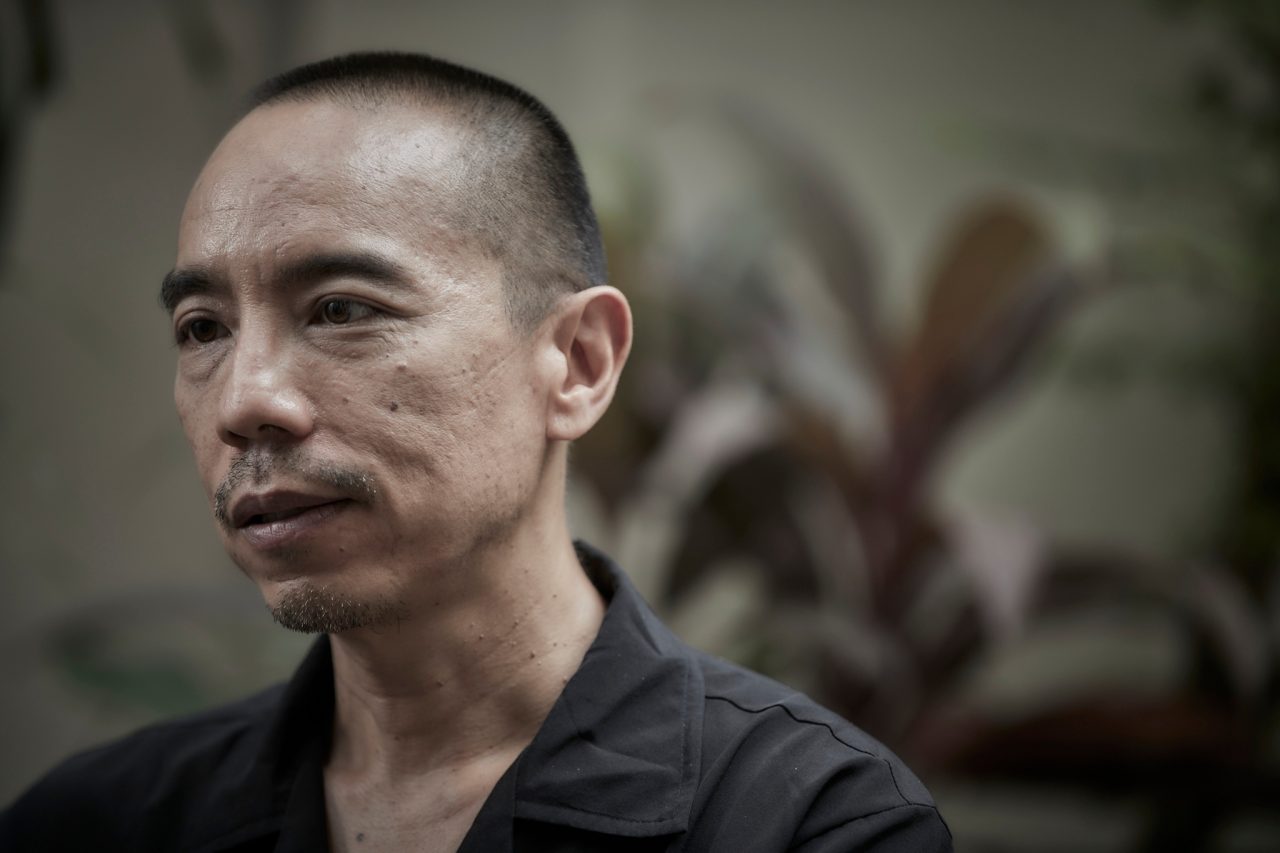“It’s like a box of memories,” muses Apichatpong Weerasethakul as he reflects on his 2009 work Primitive. Now, 15 years later, M+ is bringing Primitive to Hong Kong for the very first time, providing local film enthusiasts with the rare chance to open this box of memories – personal memory, cultural memory, and repressed memory – that morph together to form a dreamlike narrative, a story of Thailand’s history that was once left untold.
Shot near the filmmaker’s hometown of Khon Kaen, Primitive explores the story of Nabua. While it is known to most as merely a sleepy village in the Northeast, Nabua’s rice fields have witnessed some of the most severe political violence the country has ever seen. Blurring the lines between imagination and reality, Weerasethakul’s Primitive is a time-transcending symphony composed of local teenagers’ thoughts, songs and dreams, intertwined with echoes of Nabua’s brutally painful past that is still unheard by many within the nation.

Installation view of Apichatpong Weerasethakul: Primitive, 2024
Photo: Dan Leung; Image courtesy of M+, Hong Kong
Presented in The Studio in M+ as part of the M+ Collection, the multi-channel video installation also comprises two other short films and an artist’s book alongside two single-channel works, Phantoms of Nabua (2009) and A Letter to Uncle Boonmee (2009). Primitive also informed Weerasethakul’s feature film Uncle Boonmee Who Can Recall His Past Lives (2010), which became the first Thai film to win the Palme d’Or at the Festival de Cannes.
Portrait of Apichatpong Weerasethakul
Photo: Dan Leung; Image courtesy of M+, Hong Kong
Do you remember the first moment that you fell in love with filmmaking?
When I was really young, I grew up in a small town where, somehow, there were many cinemas. My mom took me to all these films, and the screen provided such a contrast to the life we lived in that small town. Horror films and ghost stories really left a deep impression on me.
How would you personally describe your filmmaking style?
I don’t know. I think it reflects my evolution over the past 20 or 30 years. I recently watched my film from 20 years ago, and it’s so different. So while my work over the years may look similar to some audiences, it is hard to explain my style in a few words. For me, it is ever in flux. The idea of love and the idea of death are portrayed so differently in each of my works. When I look at my old films, I see a different person.
How would you say you have evolved as a filmmaker?
At the beginning of my filmmaking journey, I really put cinema on a pedestal, like it’s so pure, you know? But it has just become a part of life. Cinema is like a person; it has so many personalities. It is an animal that you cannot control, and it has its own soul. This is really hard to explain, but this is also exactly why I’m drawn to cinema: it has no formula. It is alive, and it just keeps changing.
What is the concept behind Primitive? Any interesting sources of inspiration?
I think it’s like a box of memories. I just watched it again this morning after a long absence from it, and I revisited the guy [myself] who made the film, who was full of questions about land and about home. The project started from wanting to know the story behind my home, and what Thailand is outside the classroom. It’s about going back to work with the younger generation of this small village in my home country that has quite a brutal past marked by a period of political violence which is not widely known, even within Thailand.
Can you tell us more about this village?
This village, Nabua, is located in Northeast Thailand. It is the place where the first gunshot was fired in a clash between the communist farmers and the government military, where the first casualty occurred. It was a long time ago, so I decided to work with the younger generation who didn’t experience that firsthand. The whole film brings to life the spirit of the youngsters there, encapsulating their dreams as well as my own. It is almost like an ancient memory. I think the younger generation is trying to come to terms with their village’s past and maybe how to tell their story too, because they have lost family. When you look at the credits in the film, you see the last names of the younger generation. Many people bearing the same last names were killed during that violent time. So these teenagers know the story of their village, but to be with the crew members, to share their stories with us and to play together, it was different. It was not academic. It was all about sharing life at that time, passing on this memory in a different way, through play.

Apichatpong Weerasethakul, Primitive, 2009 © Apichatpong Weerasethakul
Photo: Courtesy of Apichatpong Weerasethakul
How did you stumble upon this story?
Well, my mission in the very beginning was to find the relative of this man named Boonmee because I was working on a feature film. He is from a city in the Northeast, so I took a road trip to find his relatives. Then, I stumbled onto this village, and I got stuck there working on this film. Boonmee is a man who claims that he remembers his past life. He was staying at this temple near my house, and one of the monks there listened to his story, wrote it down and published it in a little book, just a cheap little self-published book to give to people in the temple. I read it a long time ago. I got this book around 2002 or 2003. I’ve always wanted to meet or make a movie about this guy who remembers his past lives. That’s how it all started.
What do you hope the audience takes away from Primitive?
I hope people will approach it like my other works, meaning that you don’t think, you go with feelings, you let the image and sound flow through you, and you relax. It’s not really an intellectual encounter or anything. It is really simple: images and sound.
Was there a message that you tried to send through this film? Or was it more just to capture the essence and the spirit of the youth in Nabua?
It’s all personal, meaning it is from me, just to capture for myself.

Apichatpong Weerasethakul, Primitive, 2009 © Apichatpong Weerasethakul
Photo: Courtesy of Apichatpong Weerasethakul
So how do you see the Thai filmmaking scene evolving in the future?
It’s not about me. It’s about the younger generation. I think we have to thank Netflix and other streaming platforms and there are many young, independent filmmakers working for Netflix. It provides them with a more systematic way of working in film that is more democratised. I like it. In terms of creativity, I think film is moving along with other things in society. Now, we are quite struggling in terms of democracy and politics. So I cannot say much about this trajectory of our filmmaking or how free we can talk about things.
Do you see a big difference in filmmaking now from when you started making films?
In the past, I would say that filmmaking was quite sacred. For a shoot that lasted for just ten minutes, film was very limited, even with video, Now, resources so abundant and almost limitless. And everything is so sharp now. Back home, I think young people are struggling while trying to present the political situation of our country, where there is a lot of repression. We also do not have any political filmmaking or art-making traditions, unlike places such as Latin America. In Thailand, we are still learning how to express our political scene artistically. It’s a really new direction for young creatives.

Portrait of Apichatpong Weerasethakul, 2021
Photo: Supatra Srithongkum and Sutiwat Kumpai; Image courtesy of Apichatpong Weerasethakul
Do you have any upcoming projects coming soon that you can tell us about?
I’m working on an artwork now for Naoshima, an art island in Japan. I am joining forces with Haegue Yang, and we’re going to unveil our collaboration in June. I am also working on a show with Centre Pompidou in France, which will be in September or October. And then I have a new film coming out soon, I think in two years.
Will you ever consider making a film in Hong Kong? Or about Hong Kong?
Why not? I say yes to everything. (laughs)
Guided viewings of Primitive will be hosted during M+’s inaugural “Asian Avant- Garde Film Festival” from May 30 to June 2 2024.
Editor
Kaitlyn LaiCredit
Lead Image: Dan Leung; Image courtesy of M+, Hong Kong


